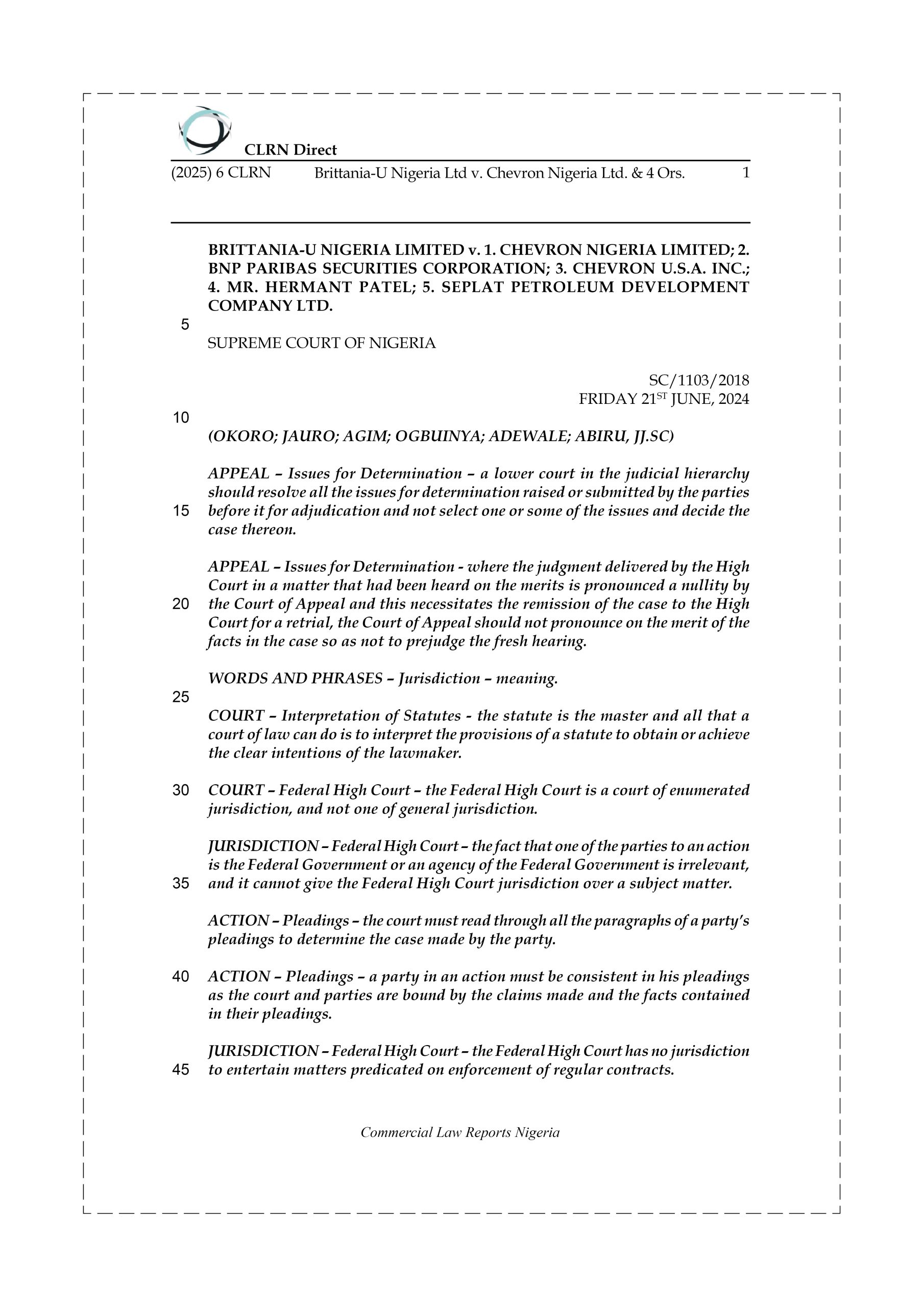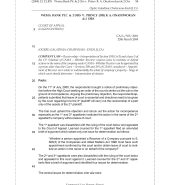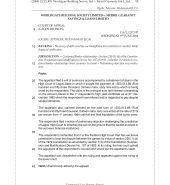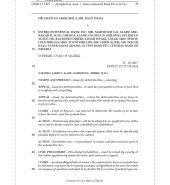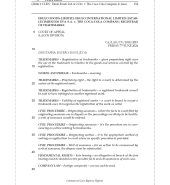BRITTANIA-U NIGERIA LTD v. CHEVRON NIGERIA LTD. & 4 ORS.
₦1,000
In Stock
Facts:
This appeal challenges the judgment of the Court of Appeal, Lagos Judicial Division. The Appellant’s case was that the 1st Respondent owned a 40% interest in Oil Mining Leases (OMLs) 52, 53, and 55 under a joint venture with the Nigerian National Petroleum Corporation (NNPC), which owned the remaining 60%. The 1st Respondent, through the 3rd Respondent (its parent company), engaged the 2nd Respondent to manage the bidding process and appointed the 4th Respondent as Bid Coordinator to divest its interest via competitive bidding.
The Appellant alleged that the Bid Procedure Documents outlined a two-stage bidding process, culminating in selecting a preferred bidder to submit a final binding offer. The Appellant claimed it participated in the bidding, submitted the required indicative offer of $1.2 billion on July 29, 2013, passed the first stage, and proceeded to due diligence in Houston on August 19, 2013. It then submitted a binding offer of approximately $1.67 billion on September 30, 2013, supported by bank funding letters, and paid $250 million via irrevocable letter of credit.
Despite meeting all requirements and responding to unilateral revisions of bid terms by the respondents, the Appellant alleged the respondents failed to issue a formal letter of award or sales agreement. After giving a 48-hour notice and sending a pre-action letter, the Appellant received a letter from the 1st Respondent claiming it could withdraw from the sale unilaterally and raising objections regarding the structure and financial support of the bid.
The trial court heard the notices of preliminary objection and the applications of the first to the fifth respondents on the merits and it delivered a considered ruling wherein it found that it had jurisdiction to entertain the claims of the appellant and that the case of the appellant, as filed, disclosed a reasonable cause of action and it dismissed the notices of preliminary objection and the applications. The lower court heard the appeal of the first and second respondents on the merits and it delivered a well-considered judgment wherein it found that the claims of the appellant were predicated on a simple contract and that as such the trial court did not possess the requisite jurisdiction to entertain them and further that the case, as filed by the appellant before the trial court, did not disclose a reasonable cause of action. The lower court allowed the appeal of the first and second respondents and it set aside the ruling of the trial court and it struck out the case of the appellant.
Further aggrieved by the decision of the lower court, the Appellant appeal to the Supreme Court.
